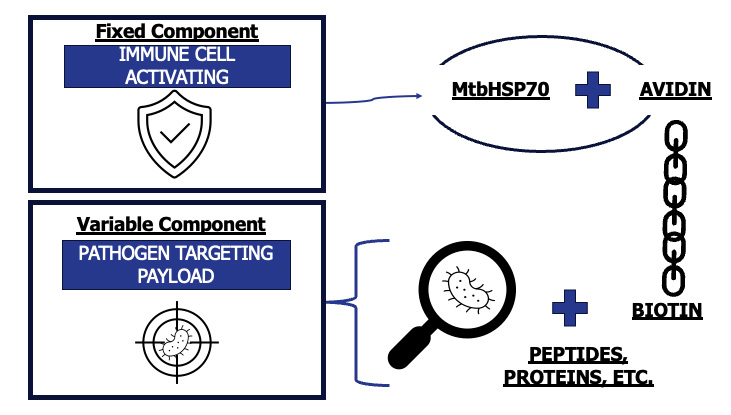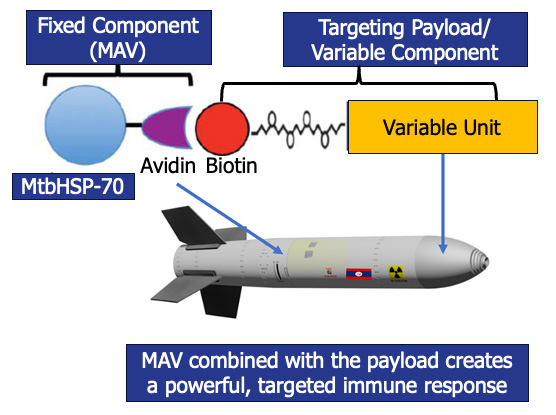Technology Platform:
Precision-Targeted, Potent, Rapid Development
Next-generation immune-activation architecture engineered to enhance immune performance and reduce development time across oncology and infectious disease indications.


A Modular Two-Part System:
Fixed + Variable
Fixed + Variable
Voltron’s technology uses MtbHSP70-Avidin fusion protein (MAV), which is the integral, differentiated carrier protein that is used across all proposed products for a wide range of therapeutic areas, including oncology and infectious diseases.
MtbHSP70 is an immune cell activating fixed component that binds to a pathogen targeting the variable component.
Precise. Potent. Customizable.
Platform provides rapid development of therapeutics consisting of two components:
- Fixed fusion protein of M. Tuberculosis Heat Shock Protein-70 (MtbHSP-70) combined with Avidin to form the MAV
- Fixed component can be manufactured, stockpiled in advance and used in all Voltron vaccines Statistically significant enhancement of immune targeting and survival vs. standard delivery vehicles
- Variable/specific biotinylated immunogenic epitopes identified by in-silico screening method to target. This includes peptides, proteins, polysaccharides, small molecule, lipids, Mabs, etc.

Results in a Differentiated and Unique Approach
-
Engages multiple parts of the immune system, leveraging both innate and adaptive responses.
- Drives a well-balanced T-cell response, activating both CD8+ cytotoxic T cells (killing cancerous/infected cells) and CD4+ helper/memory T cells (orchestrating and sustaining immune defense).
- Activates dendritic cells, the critical first responders in antigen presentation.
- Activates dendritic cells, the critical first responders in antigen presentation.
-
Increases Tumor Necrosis Factor (TNF), intensifying tumor cell death.
This strategic design results in broader, more durable immune responses — crucial for achieving meaningful patient outcomes in both oncology and infectious disease settings.
